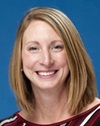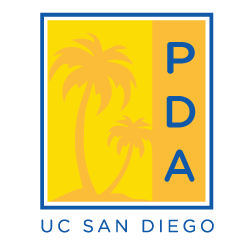
Jill Wykosky, Ph.D.
Staff Scientist | Takeda Pharmaceuticals

- Interview Overview
Interview Overview
Interviews by: Anjana Chandrasekhar
Editing: Alexandra Bortnick
1. Could you please list your previous department at UC San Diego and provide a brief description of the research you conducted?
My previous department was the Ludwig Institute for Cancer Research. My research focused on oncogenic signaling and resistance to targeted therapy in brain tumors.
2. Could you describe your current job profile?
My current position is Staff Scientist, and my job involves pre-clinical target discovery and validation for novel small molecule therapies across several disease indications. Much of the position is around expanding existing discovery programs, and a large focus is on generating collaborative projects to effectively utilize our target discovery technology globally throughout the company.
3. What made you decide to transition into your current position?
I had accomplished what I set out to do during my postdoctoral fellowship, which meant it was time to move on. I had decided some time ago that following my postdoc I wanted to pursue a career in industry, mainly because I felt that it was the best fit for my personality and goals.
4. Apart from the research you conducted, do you feel like anything in particular has helped you to acquire your current position?
I wish I could say it was the fact that I went to every biotech networking event in San Diego that I could find for the past 2 years, because that is exactly what I did. Networking is of the utmost importance, but the truth is that I got the interview for this job because someone liked my resume – which they actually told me during the process. And your resume is a reflection of how hard you have worked, what you have accomplished, and what you aim to do. I’ve also been told that one of the things that “got me hired” was my enthusiasm and persistence.
5. Could you list some of the most striking similarities and differences between your post-doc and current position?
The biggest difference is the focus and pace of the research. The focus has shifted from publishing and getting grants funded to filing an IND [Investigation New Drug]. There has to be a very good reason to conduct every experiment, not just because “it might be interesting to see if…”. The science and experimental design side of things is very similar. There is more of an emphasis on project timelines, and everything runs at a much faster pace. And it truly is an environment of “team science,” which is very exciting.
6. Is there any specific challenge (during the entire process of transitioning) that you would like to highlight and if so how did you overcome it?
A significant challenge for me was that I completely shifted disease focus. My expertise and background is in oncology, and now I am working in many other disease areas. It is difficult to be lead on a project for which you are not an expert in the disease. The most important element to overcoming this challenge has been to be honest about my lack of experience and ask as many questions and have as many discussions as possible. I work best when challenged, so despite the difficulty, it has been and continues to be extremely rewarding for me. Another challenge that comes with any new job has been simply learning how things work and what the expectations are, and that just gets better with time and patience.
7. Could you describe your goals and ambitions for the next 5 years?
At the most basic level, to discover disease targets and generate therapies that advance clinically and make a significant impact in improving patients’ lives.
8. What do you feel is the most important advice you can give to a current UCSD Postdoc in order for them to obtain a position such as yours?
Work hard, be persistent, and be excited about your job search and obtaining a new position. This attitude comes across instantly during the interview process. Consider possibilities even if you think they aren’t the “perfect match” for you, because it is possible that you haven’t really thought hard about what that “perfect match” is. Step out of your comfort zone and challenge yourself; it is difficult in the moment but definitely worth it as it will significantly impact your life both personally and professionally.
